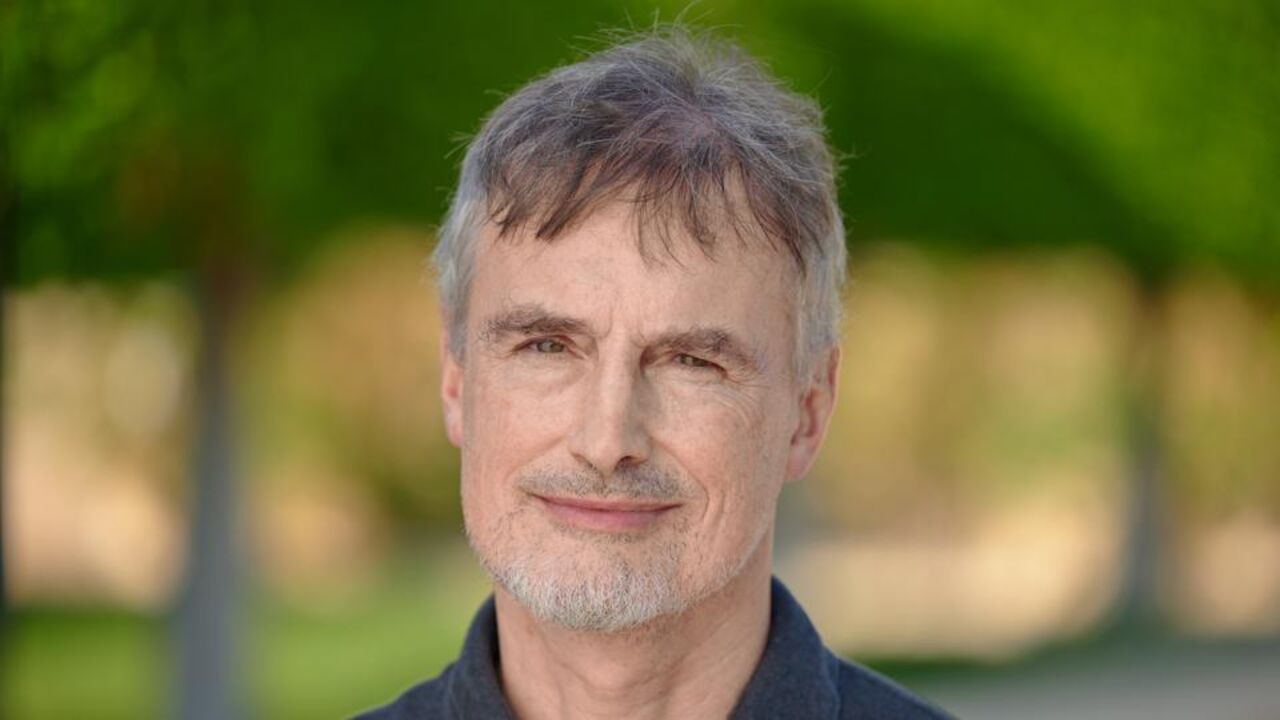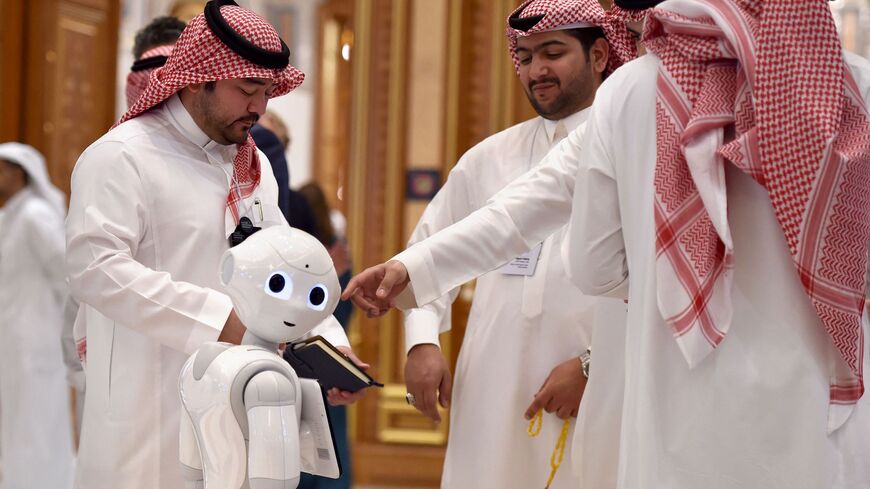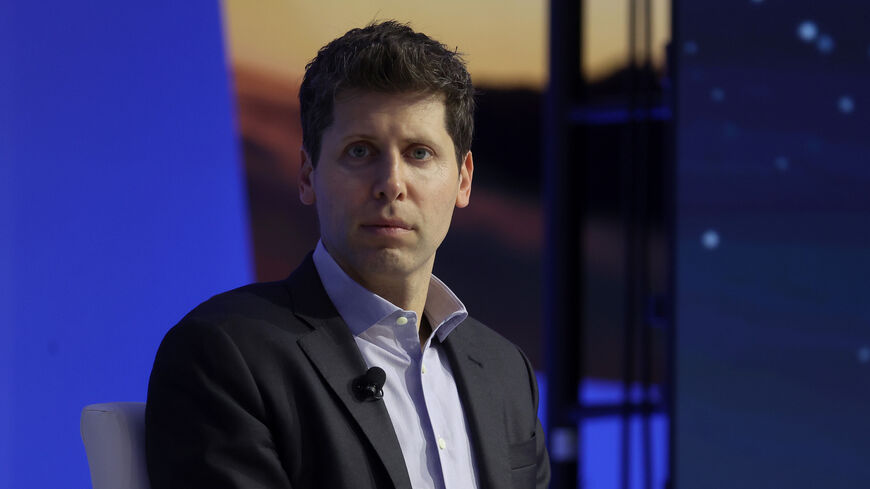AI pioneer Schmidhuber bets on Saudi Arabia for trillion-dollar breakthrough
Juergen Schmidhuber, a pioneering AI researcher told Al-Monitor that Gulf players have opportunities to take on traditional tech powerhouses in this high stakes AI race.

As world powers race to dominate in artificial intelligence, ambitious Gulf Arab states want to elbow into the conversation by injecting billions into the transformative technology.
Competition is fierce, but a pioneering AI researcher told Al-Monitor that Gulf players have opportunities to take on traditional tech powerhouses in this high stakes AI race. “To the extent that they can attract the best AI researchers and developers in the world, they'll be able to become world leaders in this field,” said Juergen Schmidhuber, a German computer scientist who made early AI breakthroughs that have influenced Amazon, Apple, Google and beyond.
Schmidhuber’s statement can be seen as self-referential: He himself is now pursuing new AI discoveries in Saudi Arabia, where he leads the AI Initiative at King Abdullah University of Science and Technology (KAUST). He took that role in late 2021, opening a new chapter in a career that has been anything but conventional.
Memorably, that saw Bloomberg in 2018 describe Schmidhuber as the “godfather the AI community wants to forget.” Despite producing seminal AI research, Schmidhuber hasn’t enjoyed the same recognition and acclaim lavished on peers in Silicon Valley and the reasons have been well-documented: He is a somewhat contentious figure in the AI world, known for clashing with fellow researchers over who deserves credit for creating what. Even Elon Musk has waded into the conversation, posting on the X platform in November 2023, “Schmidhuber invented everything.” Take that hyperbole as you will, but it only adds intrigue to his bet on Saudi Arabia.
Trading Switzerland for Saudi Arabia
Schmidhuber, 61, moved to the kingdom in late 2021 after spending many years as scientific director of the Swiss AI lab IDSIA — where he mentored students including Shane Legg, co-founder of Google DeepMind — alongside serving as an AI professor at the Swiss University of Lugano. Not too long ago some could have dismissed Schmidhuber’s move to Saudi Arabia, far from traditional global centers of technological innovation. However, amid other bold moves to diversify its economy, Riyadh is ramping up AI ambitions: news surfaced in March that the Gulf state plans to create a $40 billion fund to invest in AI, while the governor of its Public Investment Fund in February pitched Saudi Arabia as a prospective hub for AI activity outside the United States. Simultaneously, neighboring United Arab Emirates is also betting big on AI.
This comes as Schmidhuber is now chasing the ultimate AI breakthrough at a university nestled on the Red Sea coastline north of Jeddah. “My position as head of the ambitious KAUST AI Initiative is compatible with my old objective of the 1970s: build an AI smarter than myself such that I can retire," Schmidhuber said. That goal aligns with a broader race to develop what’s known as artificial general intelligence (AGI). The term has varying definitions, but it roughly means an all-purpose AI capable of rivaling or surpassing humans across many tasks, while also potentially achieving some independence from its creators. There is also plenty of debate on how close we are to this breakthrough.
This pits Schmidhuber against tech giants and top AI innovators globally — Sam Altman, CEO of ChatGPT’s creator OpenAI, has said, “AGI will be the most powerful technology humanity has yet invented.” Most expect such a milestone will happen in Silicon Valley or another global tech hub, but with Schmidhuber in the fold could AGI emerge from Saudi Arabia? It’s a question with trillion-dollar implications and KAUST, as a key cog in Riyadh's AI ambitions, may hold the answer.
As an upstart university seeking to emulate world-class institutions like Caltech or MIT, KAUST has chased top names since opening in 2009 with a massive $10 billion endowment. That notably included luring away Caltech’s President Jean-Lou Chameau in 2013, and now Schmidhuber has become an early AI convert. “KAUST offered excellent conditions and made it easy to switch,” Schmidhuber said. “From an academic perspective, it's a very attractive place.” He ticks off the university’s achievements, pointing to KAUST in 2016 being named the university “with the highest impact per faculty, ahead of the usual suspects such as Caltech,” while also pitching Saudi Arabia as a destination. “KAUST is packed full of brilliant academics from all over the world,” Schmidhuber added.
Making new memories
Now a little over two years into his tenure, Schmidhuber reports that his research team has continued to focus on the “deepest and most popular” artificial neural networks (a type of computing system loosely modeled on the organization of the human brain). Crucially, this includes ongoing work on what’s known as Long Short-Term Memory (LSTM), an innovative concept that traces to a groundbreaking paper he co-authored in 1997 with one of his students, Sepp Hochreiter.
LSTM isn’t easy to define in plain English and was ahead of its time, but the idea “essentially offered a form of memory or context to neural networks,” as The New York Times described it in a 2016 profile on Schmidhuber. That 1997 paper has since been cited over 100,000 times, with LSTM proving hugely influential in recent years. For instance, Google announced in 2015 that LSTM had helped cut its voicemail transcription errors by 49%, while Bloomberg in 2018 called LSTM “arguably the most commercial AI achievement, used for everything from predicting diseases to composing music.”
Schmidhuber reports one of his favorite topics is “meta-learning machines that learn to learn,” an interest that has driven his work for decades. “Recently we have made good progress in this area,” he noted. When it comes to a key example of how research originating within KAUST’s AI Initiative could potentially be deployed in Saudi Arabia in the coming years, he points to their current work on building artificial chemists. Deep artificial neural networks can see how certain chemical substances react with each other, given certain temperatures, pressures, catalysts and other conditions. “From lots of training examples, they learn to predict properties of the resulting output substances,” Schmidhuber said. “That's how they learn to intuitively understand chemistry.”
These AI chemists could be used to create entirely new materials that have never been observed before. “This has tons of applications in line with the visions of the kingdom,” Schmidhuber noted, citing potential contributions to its climate goals via direct capture of carbon from thin air through better materials, or for more efficient membranes to create fresh water from salt water, among others.
Opportunities and challenges
This comes as KAUST’s AI Initiative is positioned for another boost: the university’s powerful new supercomputer, Shaheen III, is nearing completion, enabling more cutting edge AI research. That also gives KAUST another resource to attract hotly sought AI talent. Meanwhile, Schmidhuber reports that global players are already attempting to poach their AI talent and that it is normal for their doctoral students to receive excellent offers from AI labs abroad. “We have to compete with them for the best minds,” he said. “On the other hand, Gulf Arab countries are getting better and better at rehiring some of them after their stays abroad.”
On that note, KAUST has forged strong ties with China, and 34% of its postdoctoral researchers in 2023 were Chinese. That has potential to embroil the university in the US-China technology wars. As the Financial Times reported in October 2023, Saudi-China AI collaborations were stirring fears within KAUST that ties could jeopardize access to American-made Nvidia and AMD chips. When queried whether he is concerned that US-China tech competition will hinder or impact his work, Schmidhuber takes a neutral position. “I cannot predict the geopolitical actions of superpowers,” he said. “Of course we are all hoping that there won't be a shortage of AI chips such as those designed in the United States and made in Taiwan.”
This all makes this Saudi-Schmidhuber connection an intriguing story to watch — pairing a boundary-pushing AI researcher with a Gulf power eager to disrupt business as usual. Ultimately, Schmidhuber’s early AI work was ahead of its time, but the tech world has finally caught up. Now, Riyadh’s ambitions — and deep pockets — could influence the balance of power in the global AI arms race. Although his fight for recognition hasn’t endeared him to peers, Saudi Arabia has recognized an opportunity in Schmidhuber. That begs a question: Is he once again ahead of the times by betting on Saudi Arabia? Even ChatGPT can’t answer that one — for now.







